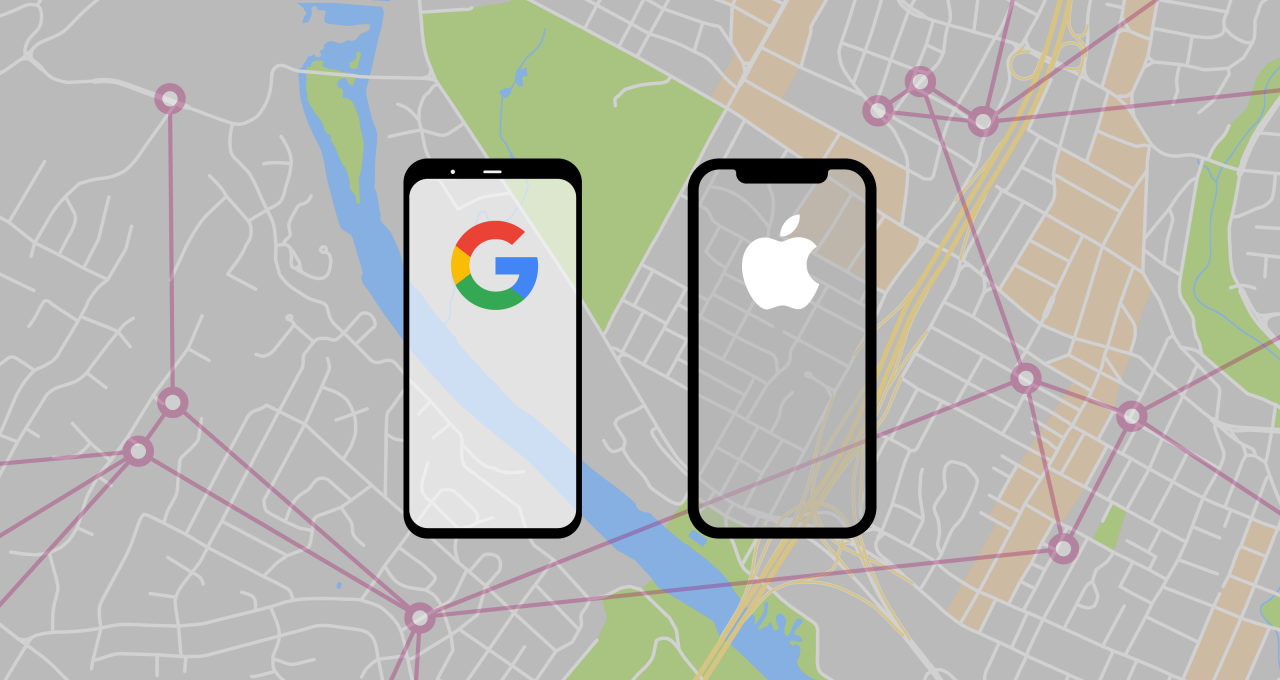Google and Apple launch contact-tracing technology around the world

Apple and Google have released a software tool that will make it possible for nations to release coronavirus contact-tracing apps that adopt the firms’ privacy-centric model, which means more privacy and data safety.
The turning point being that it offers access to added Bluetooth functionality to solve a problem existing apps have of iPhones not being able to detect each other.
Android and iOS device owners will, however, have to carry out system upgrades.
The technology is available to public health agencies all over the world, which gives the NHS, the option of building contact-tracing apps based on the companies’ technology.
“This technology is in the hands of public health agencies across the world who will take the lead, and we will continue to support their efforts”, Apple and Google said.
The new system is called Exposure Notification and is being released in software updates on Apple’s iPhone and Google’s Android smartphones.
Representatives for both companies said they expected apps from health authorities using the system to appear soon. This comes as several countries are already using the technology in engineering tests.
Experts, however, have said the introduction of the system would put pressure on the UK government. The government has built its own contact-tracing app that does not use Google and Apple’s technology.
Currently, the app is being trialled on the Isle of Wight, and has frequently been accused of impinging upon privacy rights. This is because it uses a centralised method of detecting if contacts are still at risk. Whereas Google, Apple, and other similar projects use a decentralised one in their apps.
NHS England’s app reportedly has security problems and flaws in how user-friendly it is. Including its ineffectiveness on older Android smartphones.
“Now decentralised proximity tracing infrastructure is ready-to-go on people’s phones, we are likely to see interoperable apps with large uptake quickly emerge around the world”, said Michael Veale, lecturer in digital rights and regulation at University College London (UCL).
“The release of these APIs [application programming interfaces] along with the operating-system updates will be a watershed moment for the development and adoption of proximity-tracing apps”, said Marcel Salathé, an epidemiologist at the Swiss research institute EPFL.
He added that apps that adopted the protocol should be able to be made “interoperable”, which means that citizens can continue to be contact traced as they move from one region and/or country to another. That could potentially help reduce travel restrictions imposed because of the virus — at least for those using the apps involved.
Apple and Google said public health agencies from 22 countries and some US states had already asked to test the system.
Further stating the tool was not “a silver bullet” — but “user adoption is key to success and we believe that these strong privacy protections are also the best way to encourage use”.
Austria was the first country to roll out a decentralised contact-tracing app. Stopp Corona, operated by the Red Cross, has been downloaded more than 600,000 times.
